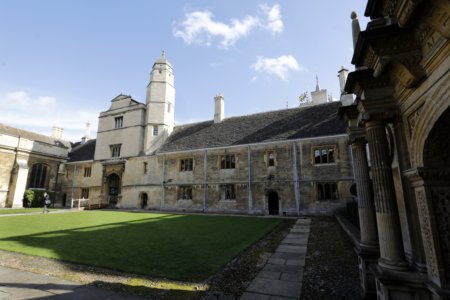
If you are an international student who aspires to study in the UK, you will have heard of the Chevening Scholarship. This prestigious international scholarship allows some of the brightest international students from eligible countries to pursue their master’s in the UK for free.
One factor that will influence your success in securing the scholarship is to ace your Chevening Scholarship interview. Preparing for any scholarship interview — especially for prestigious international scholarships such as Chevening — can be stressful and challenging if you are unsure what to expect or how to best answer the interviewer’s questions.
Fortunately, the Chevening website and YouTube are great places to search for tips and tricks from past Chevening scholars on how to answer the common questions that interviewers will ask during the interview process.
We draw on their advice for this list on acing your Chevening Scholarship interview:

The interview is an important part of the Chevening scholarship application process. Source: Niklas Halle’n/AFP
Top tips on acing the Chevening scholarship interview
1. “Tell us about yourself.”
Keanu Reeves famously said: “Sometimes simple things are the most difficult things to achieve.” Likewise, some of the most challenging questions to answer are straightforward ones.
For Argenis Toyo, a Chevening scholar from Venezuela, one of the first significant challenges of the interview process was when his interviewers asked him to describe himself. Toyo advises applicants to consider what sets them apart from others when presenting themselves to the interview panel.
“This is not a list of what you have done, this is about who you are and how that impacts your country,” he explains.
In Toyo’s case, his research into architectural technology allowed him to create a positive impact in communities by involving people in sustainable projects. In his interview, he highlighted his work on educating young students about new design tools.
2. “Tell us about your leadership experience.”
Kerry-Ann Harriot, a Chevening scholar from Jamaica, shared that she used the CAR method (Context, Action and Result) and storytelling approach in answering this question.
“My example was about leading the implementation of a platform as an answer to an organisational problem,” she explains. “I started about what my observation was, how did it impact the organisation, what I did, who I led and influenced decisions, and what the results were.”
In her YouTube video, she also provides a script on how she tackled this specific question. Click here to view it.
3. “What are your career goals?”
Most applicants who have researched the Chevening Scholarship know that this is a popular question that interviewers will ask during the interview. However, this question can still catch many applicants by surprise.
Sithabile Daka-Mungobe, a Chevening scholar from Zimbabwe, explained that the political situation in her home country was a barrier for her to set a specific career plan. She did not let that faze her and gave strong examples of how she was working towards her broader goals.
“Despite there being clear eligibility criteria for my long-term goal of being a judge in the higher courts, political interference makes it more of a fantasy than a reality,” she shares. “[I highlighted] my ability to give back to my community through various volunteer activities with UNICA-AfroEdge and other community-based organisations.”
4. “How will you engage with the Chevening community?”
A big part of the Chevening scholarship is the chance to join a vast alumni network. As Kuseme Iseh shares, you must show how you can contribute to this community as a Chevening alumnus.
“While answering this question, I highlighted how I was going to volunteer for the Chevening community and add value to every other Chevening scholar that I met. I talked about how I was going to network and build valuable relationships so we could come together to achieve a task in my field,” shares the Chevening scholar, who works as a Nigerian lawyer.
She also suggests that applicants emphasise how they can use the scholarship to network and give back to their local community.
5. “What is your backup plan?”
Laith Abdin, a Jordanian scholar, shares that this was the most challenging question he faced during his interview.
“As you can imagine, I was mentally focused on the exact opposite, and it took me a few seconds to make the switch,” he says.
While it may seem like a strange question, having a backup plan indicates the applicant’s strong commitment to their goals — a quality that Chevening seeks in their scholars. Abdin’s advice is to be genuine at whatever question that interviewers may ask during the interview.










